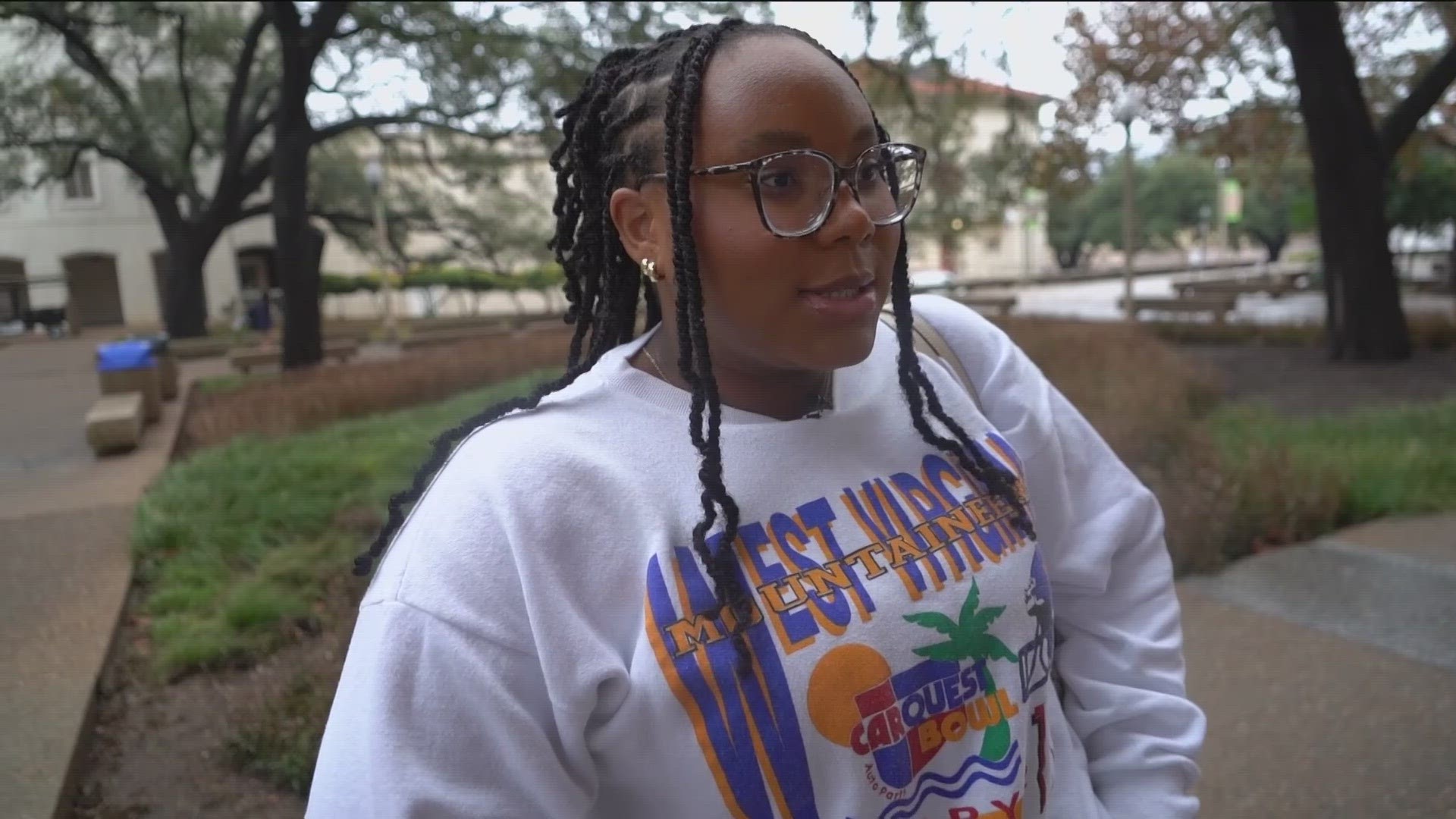AUSTIN, Texas — Some students at the University of Texas at Austin have expressed disappointment and outrage over Senate Bill 17, the new law that bans diversity, equity and inclusion (DEI) offices.
"It's definitely heartbreaking," one UT junior said.
The spring semester started on Jan. 20, and students who are close to graduation said they were met with the news that cultural graduation ceremonies would no longer take place. An email circulating on social media said it was due to the DEI ban, which forced the Multicultural Engagement Center (MEC) to close its doors.
The ceremonies were part of the MEC, which housed six university sponsored student groups:
- Afrikan American Affairs (AAA)
- Asian Desi Pacific islander American Collective (APAC)
- Latino Leadership Council (LLC)
- Native American and Indigenous Collective (NAIC)
- Queer People of Color and Allies (QPOCA)
- Students for Equity and Diversity (SED)
"It's kind of sad, but with the cancellation of DEI you're going to see much more rollbacks. This is just the start of it, and then closing the center altogether," UT senior Danika Williams said.
To fill the gap of the MEC, UT introduced the Division of Campus and Community Engagement, with the goal of engaging with the campus community while also fostering a sense of belonging for all.
KVUE reached out to the university on Wednesday about what else is being done to accommodate students. A staff member directed us to a letter announcing the creation of the Division of Campus and Community engagement, saying, "Due to Senate Bill 17, the Multicultural Engagement Center has closed as of Jan. 1. The university will consider how best to use the space as part of the Powers Student Activity Center to continue building community for all Longhorns."
UT Associate Professor David DeMatthews said while the university puts its best efforts to navigate how to implement the new law, he said students should not be discouraged.
"I hope they know, though, that SB 17 doesn't affect the course content, the academic programs at the University of Texas or any other public university," DeMatthews said. "It's important for them to organize, to use their voice, to be active in politics, to not accept the status quo."
Despite the setback, students said they will keep pushing forward.
"I think that although it is a little bit of a setback, we just keep finding ways to continue," a UT junior said.

